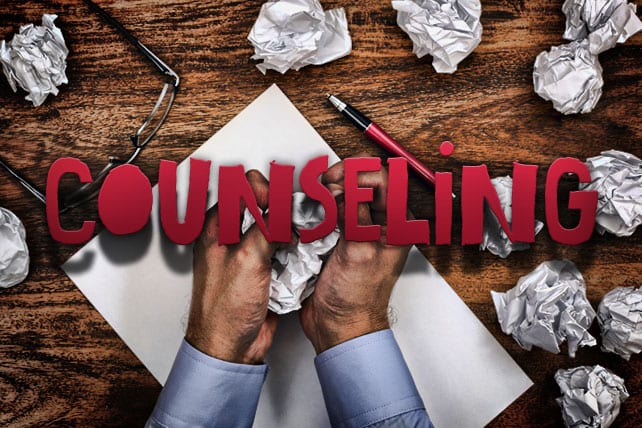I joyfully admit that I, as a pastor, have gone through extended times of personal counseling, and on a couple of occasions, even marriage counseling. The result for me was incredibly positive on just about every level I can think of. I can remember several times, as I would make the one-hour drive from the counselor’s office to my home, thinking to myself … “I wish all my pastor friends could know what a blessing it is to talk to a counselor.” It is a blessing. It’s life changing. It could save your ministry, your marriage or even your life.
Pastors, this blog post is dedicated to you!
I want to suggest five reasons why every pastor should consider seeking out personal counseling, even if you are not in a crisis right now. If you have your own reasons, or you want to add something to the discussion, please stick around at the end of the post and share your comments. Now …
Reason #1: CONFESSION: You need to confess your sins.
My office is the church’s confessional. It’s true! People come in to see me regularly, and in the process of our discussions, they confess their sins to me. I consider this a sobering and sacred honor. Almost every time, as they begin to share, I can see a mixture of fear and relief. The fear is that they are actually saying, out loud, what God already knows, and they are saying it to another human being (me). It’s scary to tell another person about our personal failures, sins and struggles.
Over the past 19 years, I have heard confessions of everything you can imagine, and though it has been difficult, I consider it a great joy to be involved in helping people find a place to confess, to repent and to find forgiveness.
Where do pastors go to confess their sins? For the most part, they go to God in prayer, and that’s it. And for some, that’s not happening any more because they’ve become too discouraged with their own sense of personal failure, so they have even stopped talking to God about it.
Many pastors feel that they can’t go to their elders or other church leaders because they fear that their honesty about personal struggles could result in them losing their job. They may also feel that they can’t tell their spouse because it could threaten the fabric of their marriage. Sadly, many pastors don’t have close friends either inside or outside of the church to whom they feel they can confess, and with whom they can just be themselves. In short, pastors typically don’t feel that there is anyone to whom they can confess their sins because they fear exposure, job loss, scorn, humiliation and even the destruction of their reputation, ministry, finances and family.
Pastors often fear that confessing their sins might mean that they will have to leave the ministry. Let me say here that some pastors should leave the ministry because they are in no condition (because of bondage to sin) to be in pastoral ministry (1 Tim. 3:1-7). But it would be better for them to come to that conclusion through a healthy process of confession and counseling. A counselor can provide a safe place for a pastor to confess his sins, and perhaps even help him think about healthy ways to leave pastoral ministry without the destructive results of a scandal because of moral failure.
Just as a pastor’s office should be a safe place of confession for your congregation, a counselor’s office (especially a professional, licensed, clinical therapist’s office) can be a safe place for a pastor to say the unsayable, speak the unspeakable and confess the un-confessable. Think of how relieved people in your church feel, pastor, after they come to talk with you. Imagine being able to have that same sense of relief when you talk to someone who can, must and will protect your confidentiality, and who will give you the safe place you need to confess your sins.
We’re sinners too, pastors. We, like the members of our congregations, need to confess our sins to another person, in sacred confidentiality, and receive prayer so that we can be healed. (James 5:16).












